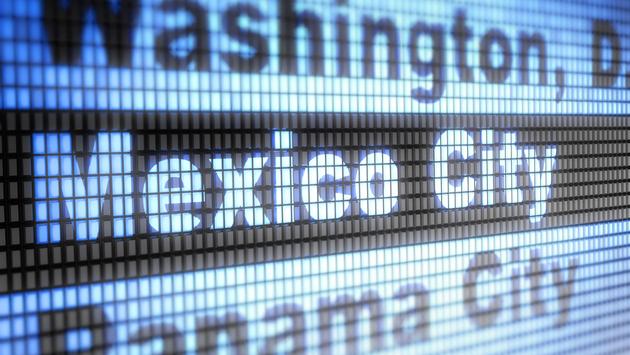Delta sees few signs travelers are itching to fly even as virus restrictions ease

With some states starting to ease coronavirus restrictions, a big question in the decimated airline industry is whether the moves will spur travelers to start buying plane tickets again.
So far, the answer appears to be no, at least according to Delta Air Lines, whose home state of Georgia is among the first to take steps to reopen its economy.
“We’re bumping along the bottom here,” Delta President Glen Hauenstein said in response to a question about travel demand on the airline’s quarterly earnings conference call Wednesday.
Bookings remain down and the airline’s passenger counts are off by 95%, he said. The airline reported a first-quarter loss, its first in five years, because of the pandemic and said revenue in the current quarter will be down 90% as the first full financial impact of the pandemic hits.
The only people still flying are those who have to, the carrier said. Delta, one of the largest airlines in the world, was set to carry just 30,000 passengers Wednesday, compared with 550,000 a year ago. It has parked more than 650 planes.
Hauenstein and Delta CEO Ed Bastian said there are still government travel restrictions and broad stay-at-home orders across the country, including one in Atlanta, where Delta is based.
“It’s hard to envision when you can’t leave your house, how you will go to travel at this point,” Hauenstein said.
When will passengers return and what will it take?
Bastian forecasts a long recovery for the airline industry.
“We believe that it could be up to three years before we see a sustainable recovery,” he said.
Delta and others are reworking their business plans to shrink operations for the foreseeable future to match sunken demand.
Bastian said the key for a travel rebound will be passenger confidence that it’s safe to travel through the airport and board a plane – places typically packed with people.
Planning for life after coronavirus: When will we know it’s safe to travel again?
“Safety will no longer be limited to flight safety but personal safety as well,” he said.
Delta and other airlines have intensified aircraft cleaning, using electrostatic sprayers and a host of other measures. They have introduced new boarding procedures and are blocking middle seats to promote social distancing.
“We’ve doubled down – in fact, tripled down – on sanitation and hygiene (and) cleanliness,” Bastian said in an interview on CNBC Wednesday.
JetBlue CEO Robin Hayes on Tuesday told CNBC that broader coronavirus testing is key to reassuring travelers “so people know (if they’re infected) before they fly.”
Another key factor to any travel rebound: passengers’ wallets. The pandemic has temporarily shuttered businesses across the country and unemployment has jumped, decimating business and vacation travel.
“The truth is our recovery will be dictated by our customers feeling safe, both physically and financially,” Bastian said.
Bastian conceded some business travel won’t return as companies rely more on Zoom meetings and other remote work they’ve turned to during the pandemic.
“I think that there will be be some behavioral patterns that will change, no question about it,” he said on CNBC.
But he added: “I don’t think that we’re turning into a telecommuting workforce. … Business travel is going to come back. People need to be face-to-face doing business together when it’s safe, when that opportunity arises.”
Similarly, vacation travelers will eventually get the travel bug back.
“People are going to want to get out of their homes and go on those experiences, whether it’s for leisure or to go visit relatives and people they haven’t seen in some time,” Bastian said.
How might flying look different post-pandemic? Traveling will definitely look different when passengers head to airport again, Bastian and other airline executives say.
“You think about everything that came out of 9/11,” he said, ticking off the establishment of the TSA and other flight safety measures such as banning anyone without a ticket from going past the security checkpoints.
Bastian says he can envision a couple of lasting post-pandemic changes:
• Immunity passports: “Could there be a new public health agency that requires a new passport to travel?” Bastian asked.
• Permanent changes in in-flight social distancing: These include new seating plans and fewer passengers per flight.
JetBlue CEO Hayes said some of the temporary measures airlines are taking today might become permanent policies. This week, the airline began asking travelers to wear masks when they fly.
“Just as with 9/11,” Hayes said, “I definitely think we’re going to see some things here change for good.” www.usatoday.com
